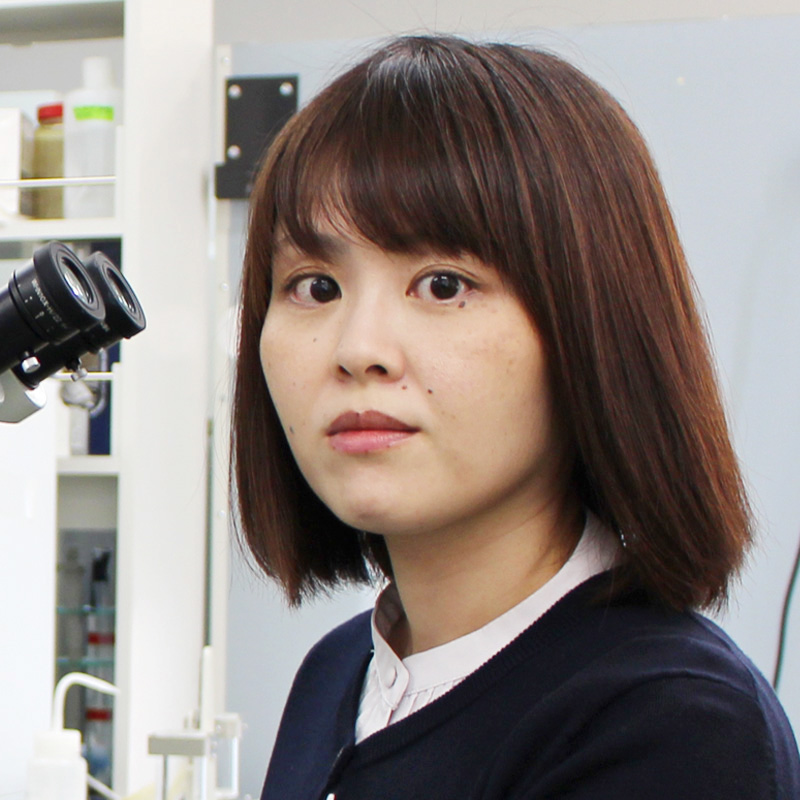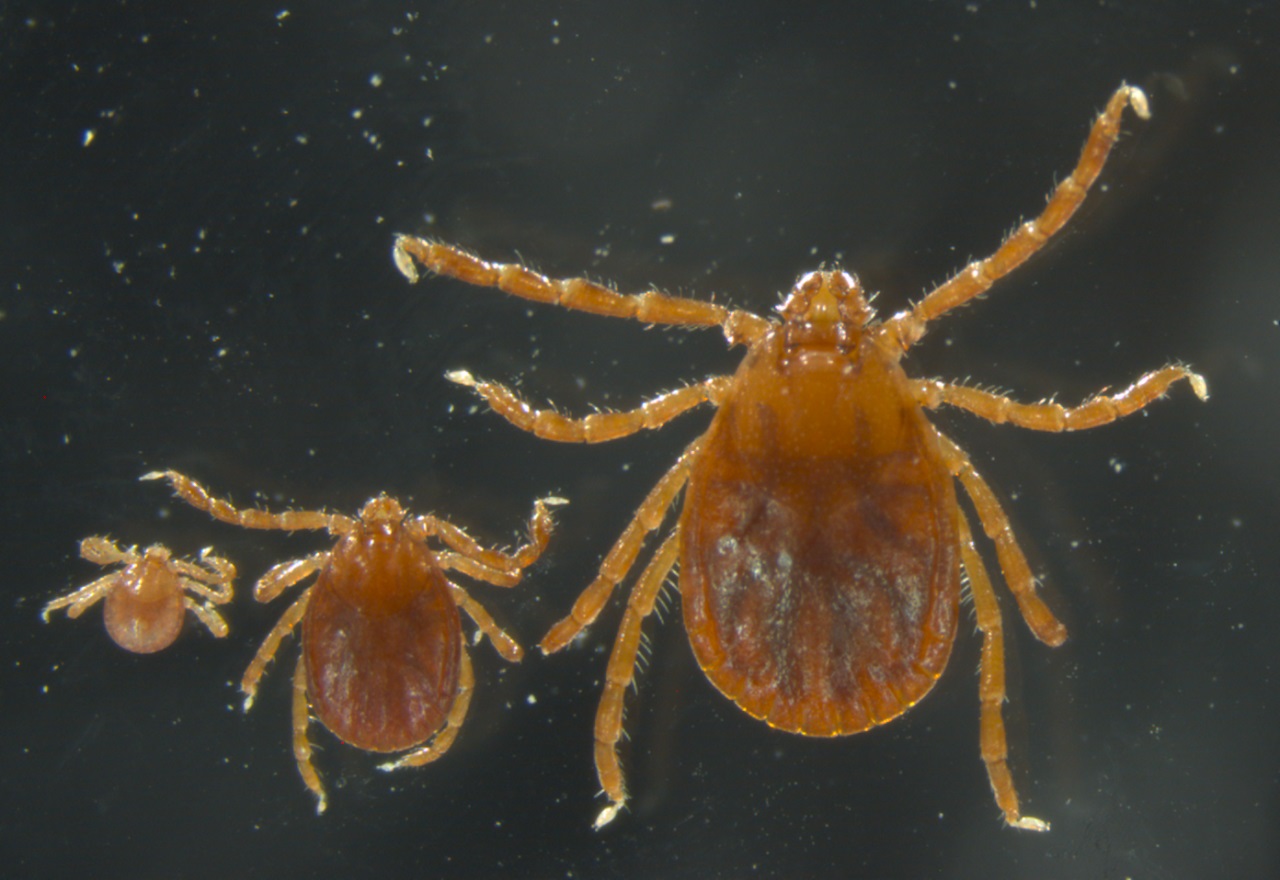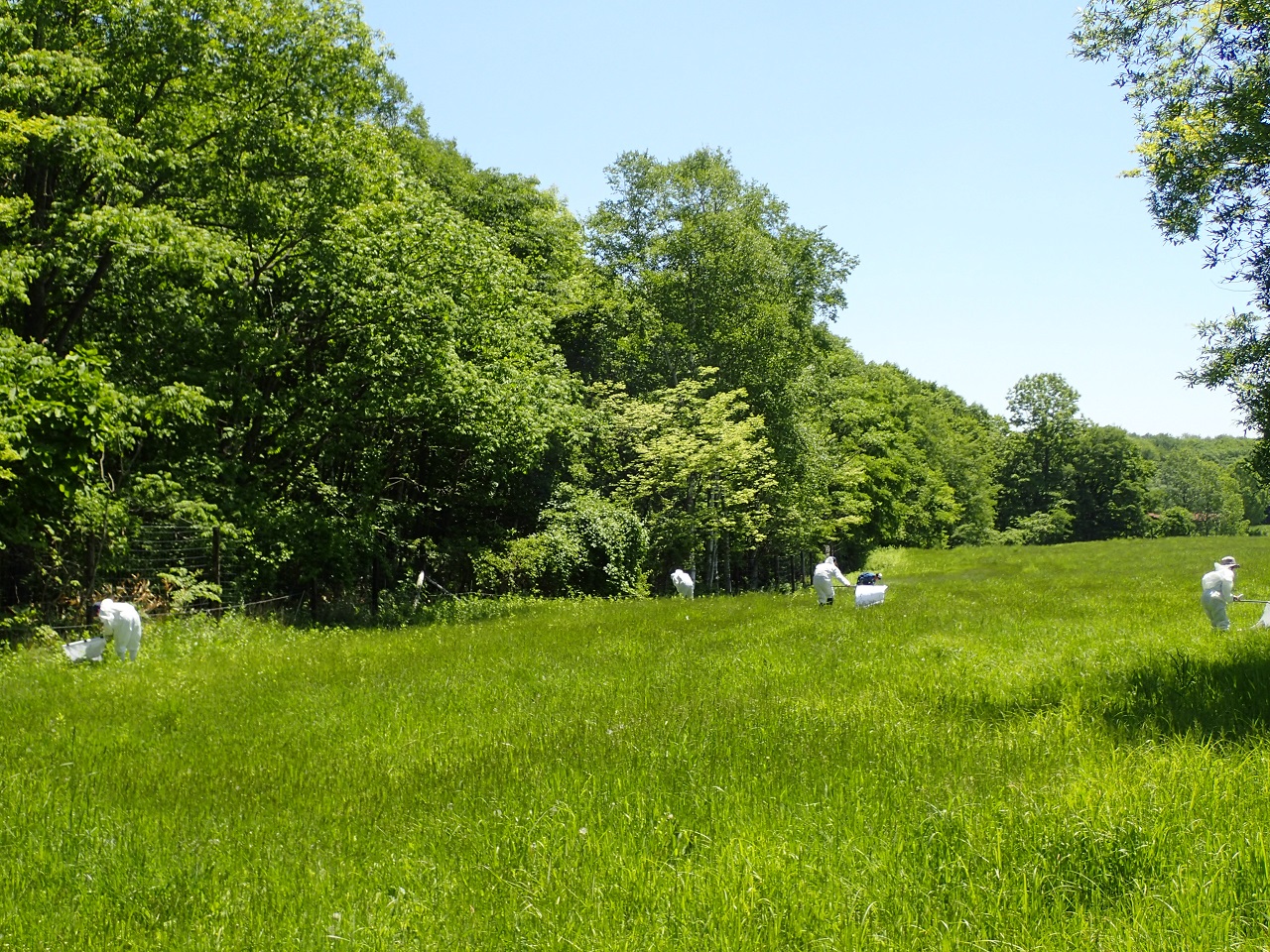UMEMIYA-SHIRAFUJI Rika Associate Professor
Belongs
National Research Center for Protozoan Diseases/Department of Disease Control/Research Unit for Molecular DiagnosticsResearch Center for Global Agromedicine/Department of Veterinary MedicineFaculty (Unit)Veterinary Medicine Program
Grad school (Course)Doctoral and Master's Program of Animal Science and Agriculture/Veterinary Life Science
| Field | Tick Biology, Veterinary Parasitology, Veterinary Entomology |
| Keyword | Tick, Vector, Babesia, Theileria, Nutrient metabolism, Starvation, Autophagy, Oogenesis, Vitellogenin, Target of rapamycin (TOR) |
Introduction
- Ticks are obligatory hematophagous arthropods and are known to be important vectors for various pathogens for vertebrates, such as Babesia and Theileria parasites. Our laboratory researches the molecular mechanisms underlying nutrient metabolism in unfed or fed ticks and tick oogenesis. Moreover, using ticks infected with parasites, we are studying the relationship between transmission of parasites and nutrient metabolism of ticks. We aim to contribute to the development of new methods for controlling ticks and tick-borne pathogens.
- Several species of ticks are constantly maintained as research resources in National Research Center for Protozoan Diseases. In addition to using the tick colonies for the research mentioned above, we're promoting collaborative and commissioned research to test the effects of acaricides, repellents, etc. on ticks. (Refer to the photos “A laboratory colony of Haemaphysalis longicornis.” and “Collection of ticks in the field.”)
List of current research topics
- Nutrient metabolism in unfed/fed ticks
- Oogenesis in ticks
- Tick-protozoan parasite interactions
| Related industries | Veterinary medicine, Animal husbandry |
| Project |
Project for Joint Usage/Research Center (From 2017 to 2021) "Establishment of Tick Biobank and its application to vector biology research" |
| Affiliated academic society | The Acarological Society of Japan, Japanese Society of Veterinary Parasitologists, The Japanese Society of Veterinary Science, The Japanese Society of Parasitology, The Japanese Society of Applied Entomology and Zoology, Japan Society of Medical Entomology and Zoology |
| Academic degree | Doctor of Veterinary Sciences (PhD) |
| License | Clinical laboratory technician |
| Self introduction |
I was interested in parasitology when I was a high school student. As an undergraduate, I didn't have the opportunity to engage in parasitology research. But I pursued research on Cryptosporidium parvum, a protozoan parasite, in my master's course. After that, I began tick research in my doctoral course. Although ticks are harmful pests for animals and humans, they are very interesting organisms when reconsidered from various angles. |
| Room address | National Research Center for Protozoan Diseases |
| Mail address | umemiya  obihiro.ac.jp
obihiro.ac.jp |







